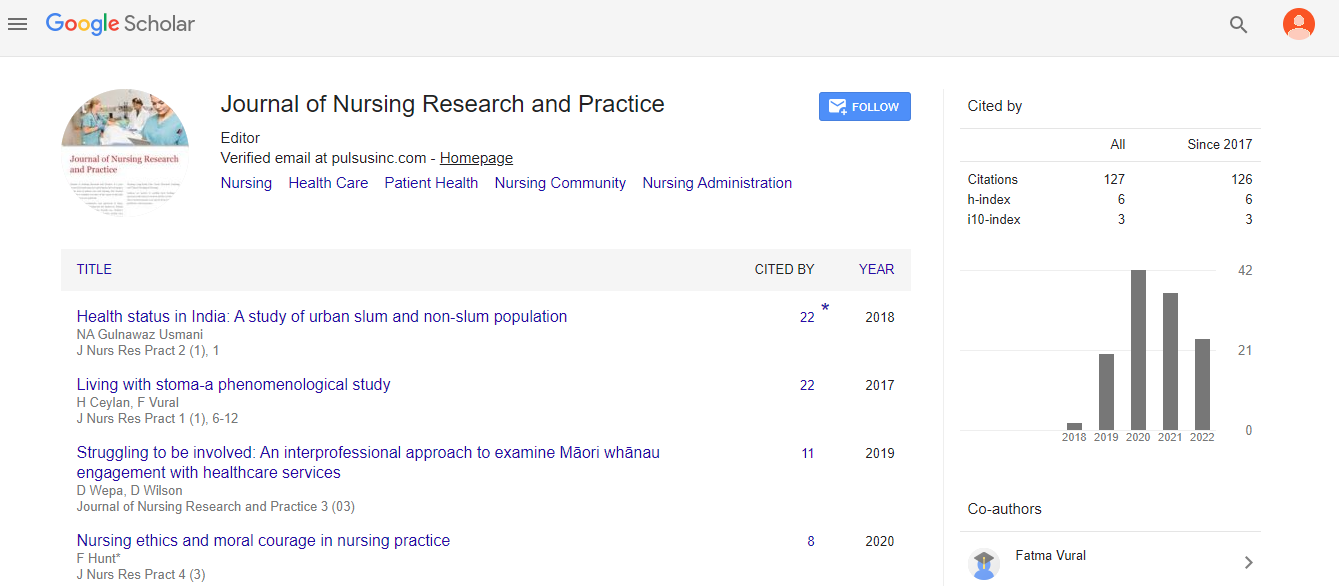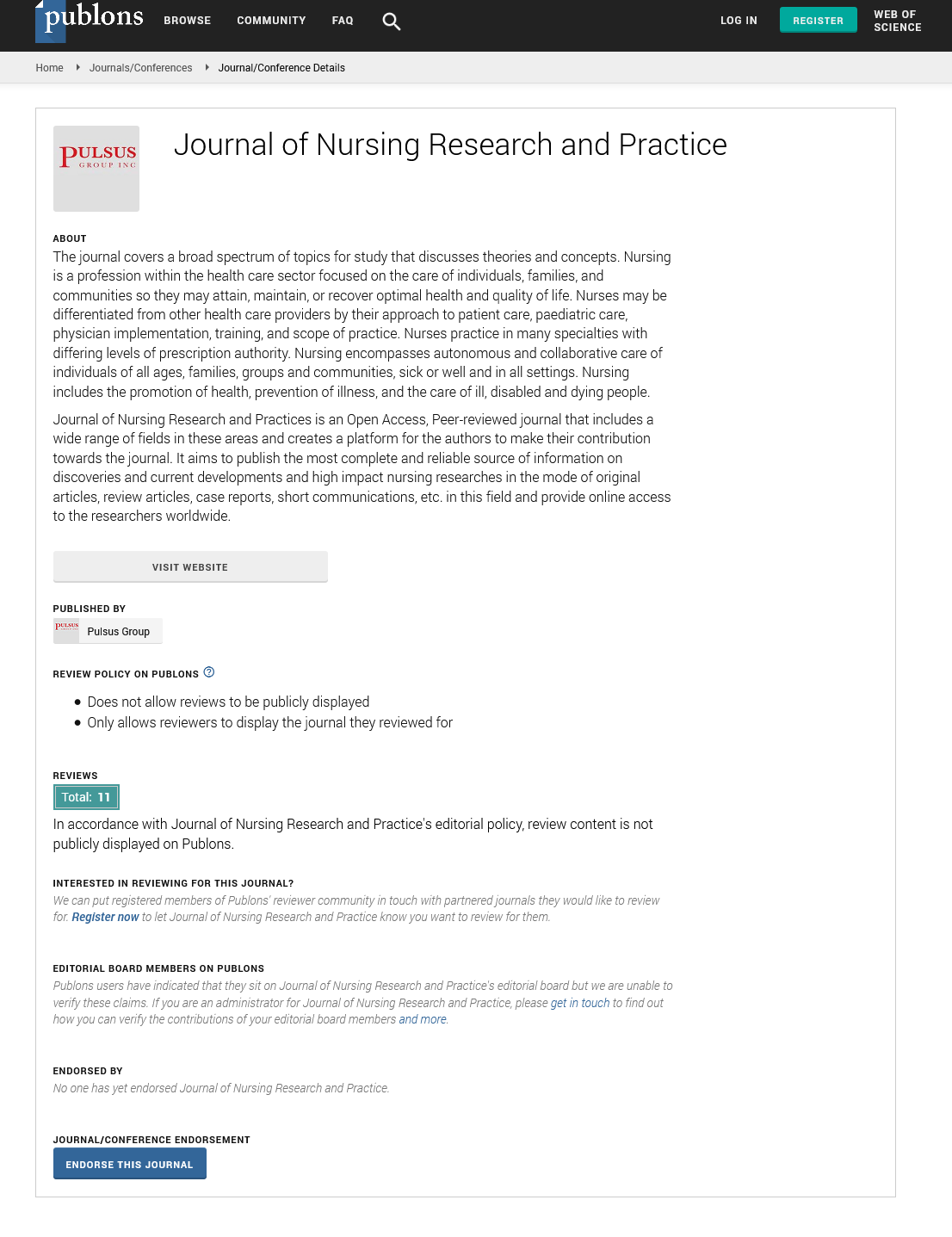A rest full sleep is the necessity
Received: 06-Oct-2021 Accepted Date: Oct 20, 2021; Published: 27-Oct-2021
Citation: Gotham D. A rest full sleep is the necessity. J Nurs Prac 2021; 5(10):1-1.
This open-access article is distributed under the terms of the Creative Commons Attribution Non-Commercial License (CC BY-NC) (http://creativecommons.org/licenses/by-nc/4.0/), which permits reuse, distribution and reproduction of the article, provided that the original work is properly cited and the reuse is restricted to noncommercial purposes. For commercial reuse, contact reprints@pulsus.com
Perspective
What caregivers should know about the social determinants of health and sleep conclusions? Sleep is a necessary and complex physiological function social determinants of health can affect a person’s ability to achieve adequate sleep quality and quantity, and can affect chronic comorbidities such as diabetes, and cognitive deficits long-term neurodegeneration. The inclusion of sleep monitoring, assessment and treatment of sleep disorders in routine medical care can have a positive and lasting effect on patients. Such an examination can begin with the care assessment. To recover our weary minds from the flood of news, work, family, and social chaos of the day. We want to sleep soundly while our brain and body prepare for the next day.
For some of us, restful sleep is a reality. We pack up and say good night, an interlude of calm. For millions of people, the reality right now is far from it. The shift to home work or chaotic shifts for key workers, children studying at home, and the threat of a pandemic have all hampered our ability to get the rest we need. Sleep becomes elusive when the environment is unsafe, economic instability persists, and disease strikes. Poor sleep contributes to mood swings, cognitive decline, and the risk of illness. Social environment, sleep, health and wellbeing are important but are often overlooked by healthcare providers.
In 1977, Engel urged health care providers to include more than just medical treatment in patient care. He proposed a bio-psychosocial model that encompasses behavioral health, environmental factors, and economic well-being in addition to traditional medical care. Since then, evidence has shown the effectiveness of their approach, but the Non-Healthy People 2020 and Healthy People 2030 models have revived that approach with their Social Determinants of Health (SDoH) program. The five main determinants are: economic stability, access and quality of education, social and community context, access and quality of health care, neighborhood and the built environment. In addition, SDoH is often not addressed in clinical encounters and many caregivers are unaware of the reciprocal and bi-directional aspects of SDoH and sleep.
This article addresses four key questions:
• Are you getting adequate sleep and is it contributing to overall health?
• How do social determinants affect sleep?
• How can we identify sleep disorders that are affected by SDoH? What should we do about it?
• Does getting enough sleep contribute to overall health?
Many of us take good sleep for granted and only realize that it benefits when we don’t get enough of it. Insufficient sleep can damage our immune systems, increase our risk of ineffective cardiovascular and endocrine diseases, and contribute to obesity. Relationships between sleep and health were found. In 2012, for example, the Glyph Path was discovered, which provides a mechanism to cleanse the central nervous system of interstitial waste products that accumulate during the day and that works primarily during sleep. Recent studies by Nedergaard and Nauen and Troncoso suggest a link between inadequate sleep and neurodegenerative diseases related to the glyph signaling pathway. Continuous research in this area can provide prevention and treatment goals.






